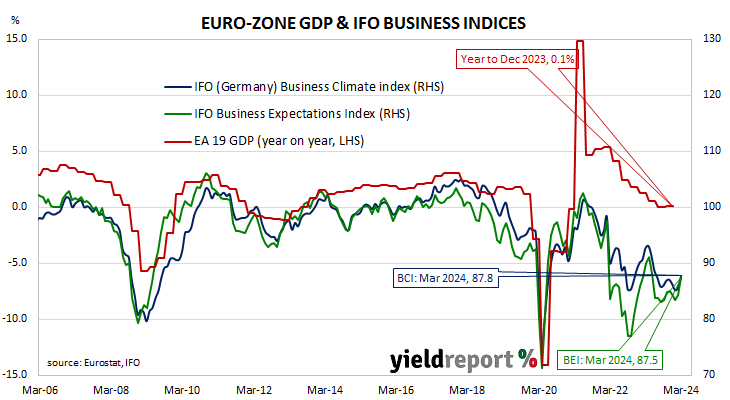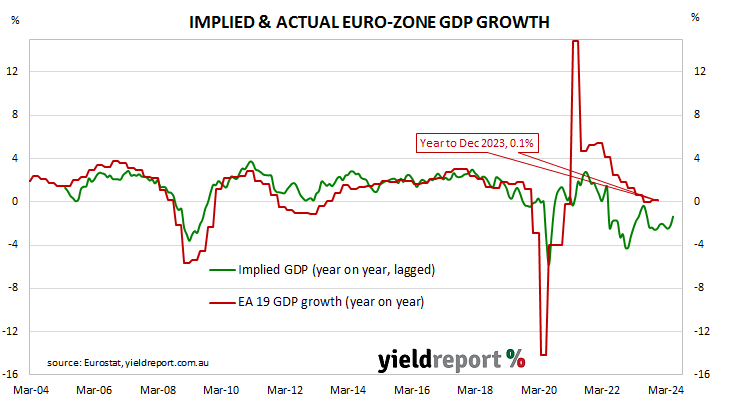ifo business climate index rises in March, above expected figure; German economy glimpses light on the horizon; current conditions index up, expectations index up; German, French 10-year yields down noticeably; expectations index implies euro-zone GDP contraction of 1.4% in year to June.
Following recessions in euro-zone economies in 2009/2010, the ifo Institute’s Business Climate Index largely ignored the European debt-crisis of 2010-2012, mostly posting average-to-elevated readings through to early-2020. However, the index was quick to react in the March 2020 survey, falling precipitously before recovering quickly in subsequent months. Readings through much of 2021 generally fluctuated around the long-term average before dropping away in 2022.
According to the latest report released by ifo, German business sentiment improved for a second consecutive month. March’s Business Climate Index posted a reading of 87.8, above the generally expected figure of 86.0 as well as February’s final reading of 85.7%. The average reading since January 2005 is just over 96.
“In particular, companies’ expectations turned much less pessimistic,” said Clemens Fuest, President of the ifo Institute. “Assessments of the current business situation also improved. The German economy glimpses light on the horizon.”
German firms’ views of current conditions and their collective outlook both improved. The current situation index increased up from February’s revised figure of 86.9 to 88.1 while the expectations index increased from 84.4 after revisions to 87.5.
German and French long-term bond yields finished noticeably lower on the day. By the close of business, the German 10-year yield had shed 9bps to 2.32% while the French 10-year OAT yield finished 5bps lower at 2.79%.
“The rise in business confidence signals that the economy should start to recover in the coming months, “said ANZ senior rates strategist Jack Chambers. “Global trade volumes are picking up, rising real wages will incrementally support future consumption growth and lower European Central Bank rates in the second half of the year will help rekindle demand.”
The ifo Institute’s business climate index is a composite index which combines German companies’ views of current conditions with their outlook for the next six months. It has similarities to consumer sentiment indices in the US such as the ones produced by The Conference Board and the University of Michigan.
It also displays a solid correlation with euro-zone GDP growth rates. However, the expectations index is a better predictor as it has a higher correlation when lagged by one quarter. March’s expectations index implies a 1.4% year-on-year GDP contraction to the end of June.



